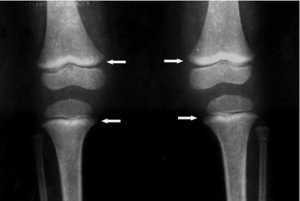
23 Jan Psychiatric Problems Related to Lead Exposure Detected As Early As Age 11
MedicalResearch.com Interview with:
Aaron Reuben, MEM
Department of Psychology and Neuroscience
Duke University, Durham, North Carolina
MedicalResearch.com: What is the background for this study? What are the main findings?
(1) Study members with greater lead exposure in childhood tended to endorse more psychiatric symptoms when assessed for psychiatric disorders in adulthood (between 18 and 38 years of age).
- These individuals tended to report more internalizing (e.g., depression, anxiety) and thought disorder (e.g., OCD, schizophrenia, mania) symptoms.
- Compared to other findings from this sample, the associations reported in this article are similar to those reported for lead and IQ, and are stronger than those reported for lead and criminal offending.
- Informants who knew Study members well reported higher levels of difficult adult personality traits among Study members with greater lead exposure in childhood.
- Specifically, Study members with greater blood lead levels at age 11 were rated as more neurotic, less agreeable, and less conscientious by 38 years of age.
- These personality traits have been previously linked to a number of poor life outcomes, including greater psychopathology, worse physical health, less job satisfaction, and troubled interpersonal relationships
- Psychiatric problems related to lead exposure could be detected as early as 11 years of age. In the 1980’s, parents and teachers of children with higher blood-lead levels had described them as displaying more antisocial behavior, hyperactivity, and negative emotions (e.g., sadness, anxiety).
MedicalResearch.com: Why are these findings important?
(1) Lead exposure is known to harm child behavioral development. We have now found that this harm persists into adulthood and may raise the lifelong risk of mental illness.
(2) We have also found that early-life exposure may alter how lead-exposed individuals behave towards or are perceived by others across their lives
(3) While lead exposure may not be a major etiological factor in adult psychiatric disease today, past exposures from the era of leaded-gasoline could have resulted in a greater burden of psychiatric disease at the population level.
(4) Adults today who were previously exposed to lead may benefit from increased screening and access to mental health services.
MedicalResearch.com: What should readers take away from your report?
Response: The implications for the larger health system are: follow-up in children exposed to lead should include mental health services and, furthermore, should focus on potential long-term persistence of changes to behavior, emotion, and interpersonal relations.
For clinicians: adult patients with a history of childhood lead exposure may benefit from mental health screening and services.
For countries and communities where lead exposures are still above recommended levels: our study adds to the large and growing lists of reasons why removing lead from the environment is an important public health goal. Consequences of childhood lead exposure are, we now know, greater than we used to believe and appear to persist, at least to midlife.
MedicalResearch.com: What recommendations do you have for future research as a result of this work?

From CDC:Long Bone Radiograph of Knees – “lead lines” in three-year old girl with BLL of 0.6 µg/dL. Notice the increased density on the metaphysis growth plate of the knee, especially in the femur (Photo courtesy of Dr. Celsa López, Clinical Epidemiologic Research Unit, IMSS, Torreón, México).
Response: One thing we are hoping to evaluate more in the future is the extent to which lead stored in the bone (which has a half-life of many years to many decades) may re-circulate as individuals age (such as during menopause and osteoporosis) and may then lead to greater acute exposures. We know this can happen, but we do not know to what extent it can be large enough to contribute to new problems in life. If so, nutritional supplementation to prevent bone loss could, hypothetically, improve health outcomes. But that is still speculative.
Citation:
[wysija_form id=”3″]
[last-modified]
The information on MedicalResearch.com is provided for educational purposes only, and is in no way intended to diagnose, cure, or treat any medical or other condition. Always seek the advice of your physician or other qualified health and ask your doctor any questions you may have regarding a medical condition. In addition to all other limitations and disclaimers in this agreement, service provider and its third party providers disclaim any liability or loss in connection with the content provided on this website.
Last Updated on January 23, 2019 by Marie Benz MD FAAD
